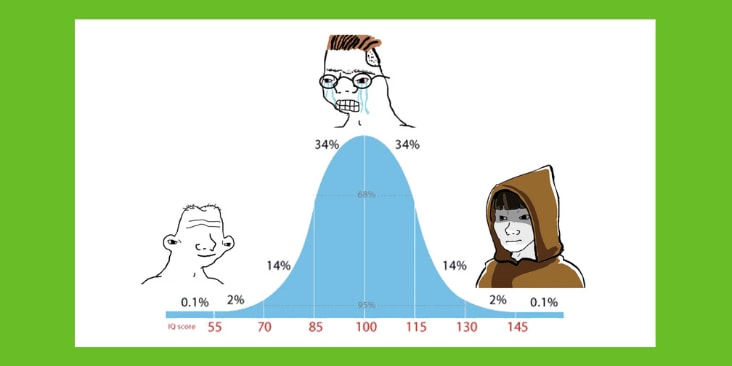"Stimulating" here is not quite the opposite of "boring". Many minds are used to said temperature changes, water assaults, and laborious motions, such that they still stimulate, but are easily ignored, leaving much space for thoughts. Showers are boring by consistency, despite stimulation.
"older the human beings" -> "older than human beings"
"copper metal cube 16 centimeters in diameter" -> "copper cube 16 centimeters to an edge"
"stuck out your throat" -> "stick out your throat"
"exame" -> "exam"
"to boy is about to die" -> "to a boy who is about to die"
Except for the crucial paragraph near the end, the style reads more like Herbert than Lsusr. Good job.
Correction: "is that you experienced was real" -> "is that what you experienced was real"
> Now I knew how to not trigger those defense mechanisms.
The linked video looks like rhetorical aikido. If that's what you're talking about, link it. If you meant something else, what did you learn to do?
You're probably right. I neglected check how effective this would be in any quantitative sense.
I think you underestimate the cost of street-level murals ($100K / mi is about $60 / m), and neglect the benefit of tunnels' inevitable insulation, but the decision would probably end up the same.
That would be fun in the same way. If your goal in playing includes informing listeners, it's better to use thoroughly absurd facts and an equally-absurd lie; absurdity is low prior probability leads to surprise corresponds to learning.
The post answers most of that, except for the first question, for which my memories of childhood are too vague anyway, but it was surely before when I was 14.
Some of the difference may be the quality (enjoyability, negative of annoyance) of the songs we respectively get as earworms (based ultimately on the quality of the songs we hear). Some of it may be that I can get distracted from verbal thinking by earworm lyrics. The rest is arbitrary personal mind-differences.
I added intention-to-treat statistics in an addendum.
there might be a common antecedent that both improves your mood and causes you to listen to music. As a silly example, maybe you love shopping for jeans, and clothing stores tend to play music, so your mood will, on average, be better on the days you hear music for this reason alone.
There might be a common antecedent that both worsens my mood and causes me to listen to music. As a silly example, maybe I hate shopping for jeans, but clothing stores tend to play music, which actually improves my mood enough to outweigh the shopping. That is, confounding could go both ways here; the effect could be greater than it appears, rather than less.
An intention-to-treat approach where you make the random booleans the explainatory variable would be better, as in less biased and suffer less from confounding.
I'll reanalyse that way and post results, if I remember.
How was this accomplished, technically?
I made a script run in the background on my PC, something like
while true:
qt = random(0, INTERVAL)
while time() % INTERVAL < qt:
sleep(1)
announce_interruption()
mood = popup_input("mood (-1 to 1):")
earworm = popup_input("song in head (N/D/R/O):")
save_to_log(time(), mood, earworm)
sleep(INTERVAL - time() % INTERVAL)The "constrained by convenience" part means that I recorded data when and only when I was at my PC. More reliable would be to run such a script on a device that's with you most of the time, like a smartphone or smartwatch, but I've no such device.
So the collapse is mistaking the one on the right for the one on the left. (This was an internet meme of some years ago, which happens to seem very relevant by how I understand the OP)